There are many materials to choose from when choosing countertops for your kitchen – each with its own unique set of pros and cons. One popular option is marble. If you’re considering marble countertops for your kitchen remodel, you should know a few things.
Marble kitchens have become extremely popular in recent years. Many people love the look of the gray veining on their kitchen countertop or their backsplash. Here are some things to consider when using marble as your kitchen countertop material.
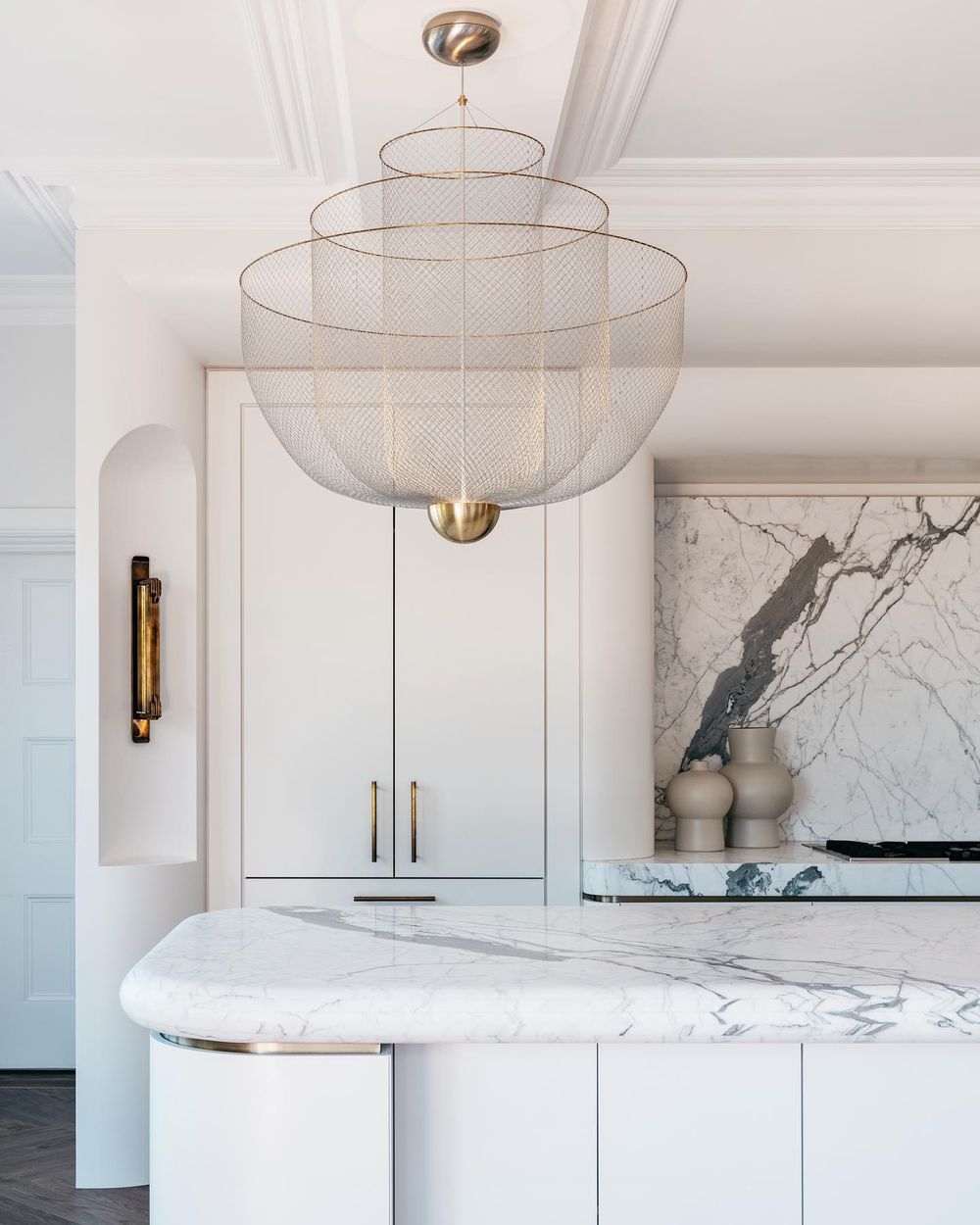
Types of Marble for Countertops
When choosing marble for your kitchen countertops, you will likely be presented with three main types of marble: Carrara, Calacatta, and Statuario. All three types of marble are stunning and would make a beautiful addition to any kitchen. However, each type of marble has its own unique character and benefits.
Carrara
Carrara marble is a white or blue-grey marble of high quality, famous for use in sculpture and architecture. Carrara marble has been used since the time of Ancient Rome. It is obtained from the Apuan Alps near Carrara, Italy. The city of Carrara is home to the famed quarry where Michelangelo sourced the marble for his sculptures.
Carrara marble is also used in flooring, stairways, fireplace surrounds, vanities, kitchen countertops, and backsplashes. Its popularity stems from its beauty and durability.
Calacatta
Another popular type is Calacatta marble, characterized by its white background and bold veining. Usually sourced from Italy, Calacatta marble is a luxurious choice for kitchen countertops. It’s also one of the most popular types of marble on the market, so it’s relatively easy to find.
However, because it’s a natural stone, each piece of Calacatta marble is unique, so it’s essential to be careful when choosing a slab for your countertop. You’ll also want to factor in the cost, as Calacatta marble can be expensive. But if you’re looking for a show-stopping countertop, Calacatta marble is a great choice.
Statuario
Lastly, one of the most popular types of marble is Statuario marble, which is white with dark veining. Statuario marble is quarried in Italy and other parts of Europe, and it has a reputation for being the highest quality marble available.
In addition to its striking good looks, Statuario marble is also very strong and resistant to scratches and stains. However, it is essential to note that Statuario marble does require some special care, such as sealing and polishing, to keep it looking its best.
Statuario marble is a beautiful and high-quality option if you consider marble for your kitchen countertop. It also makes for a beautiful marble kitchen backsplash!
Marble Kitchen Countertop Design Ideas
Now that you understand the types of marble available for your kitchen countertop, here are a few kitchen design ideas with marble countertops to inspire you.
Marble countertops with beige cabinets
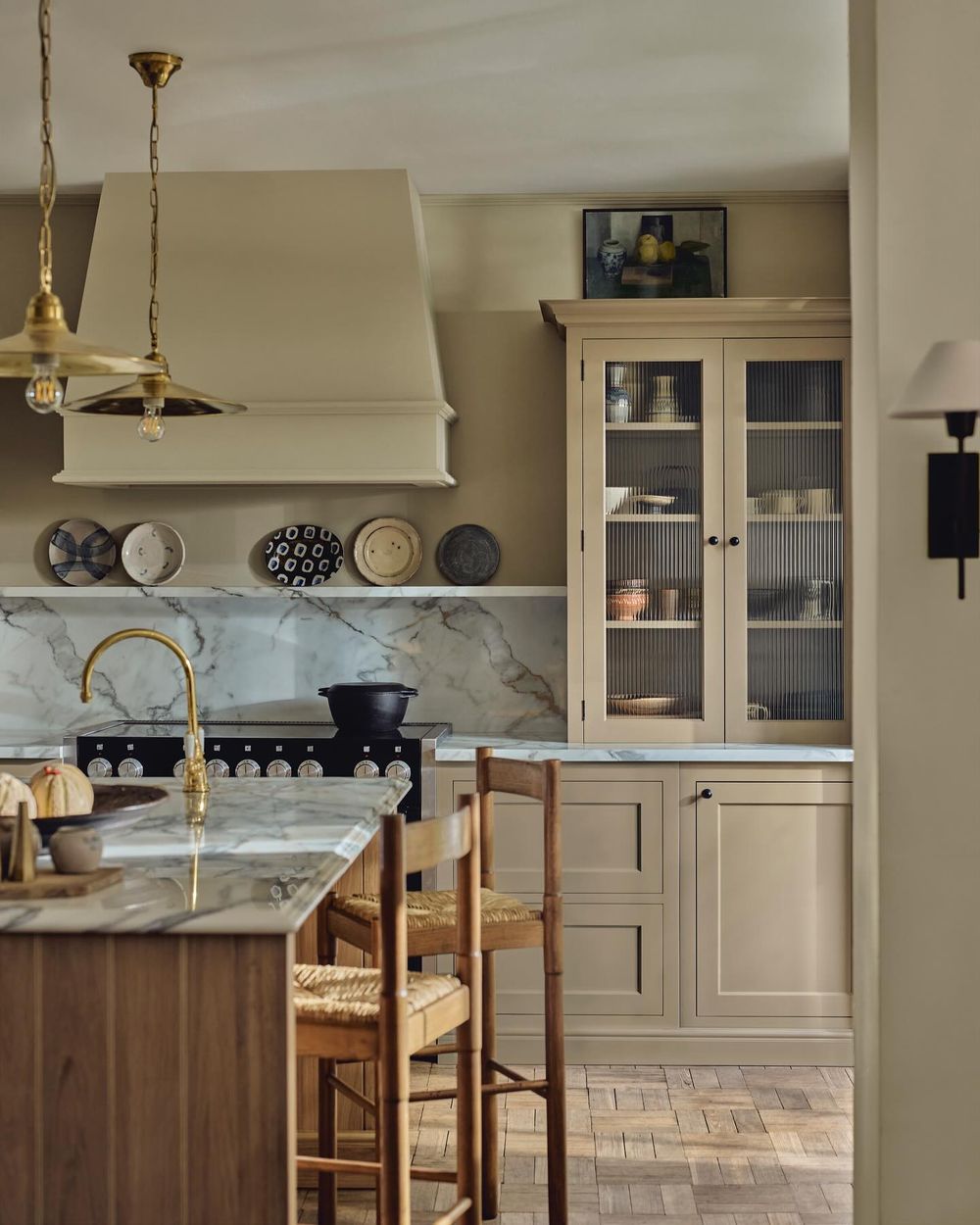
Dark Marble kitchen countertops
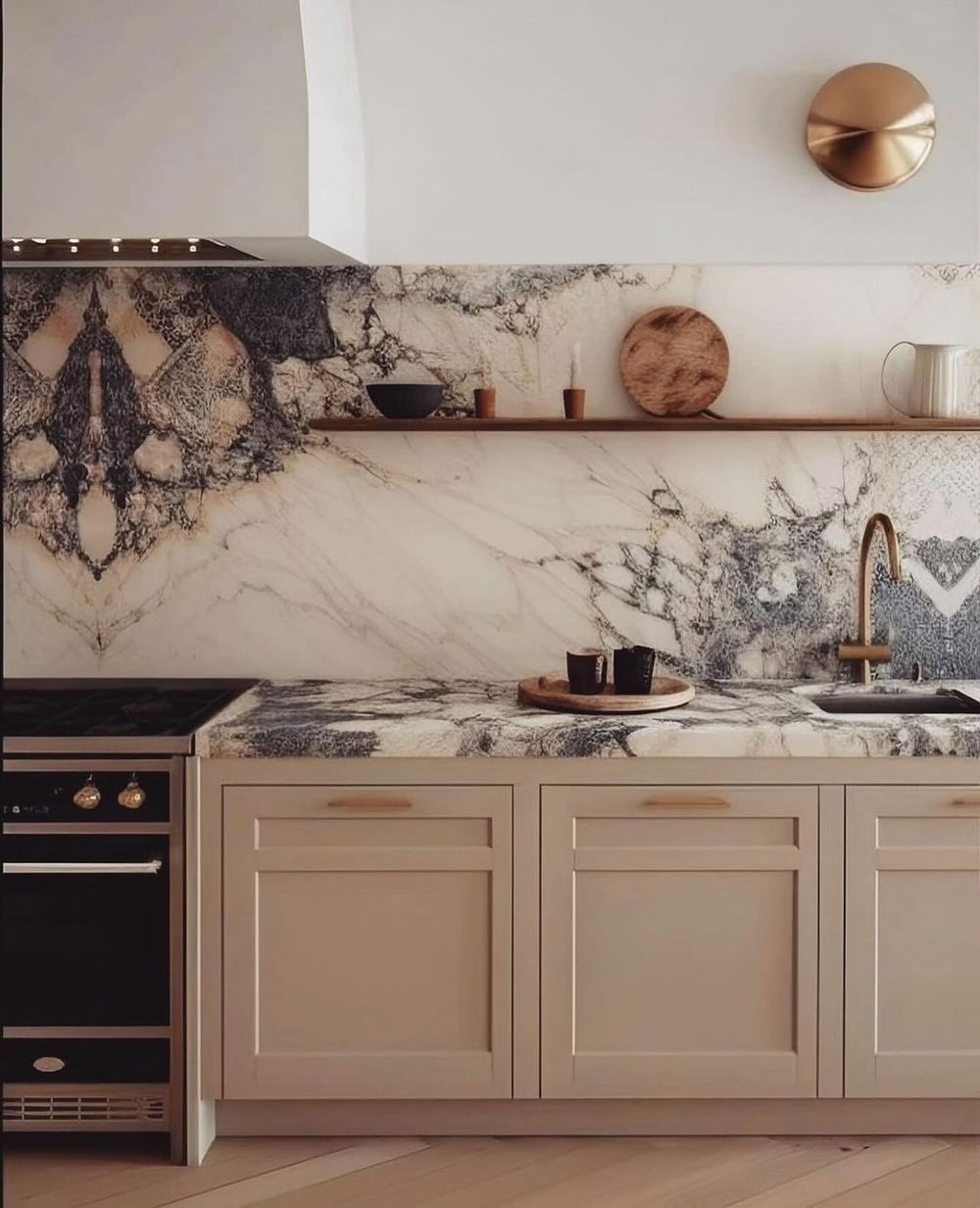
Bright and Airy Kitchen with Marble Countertops
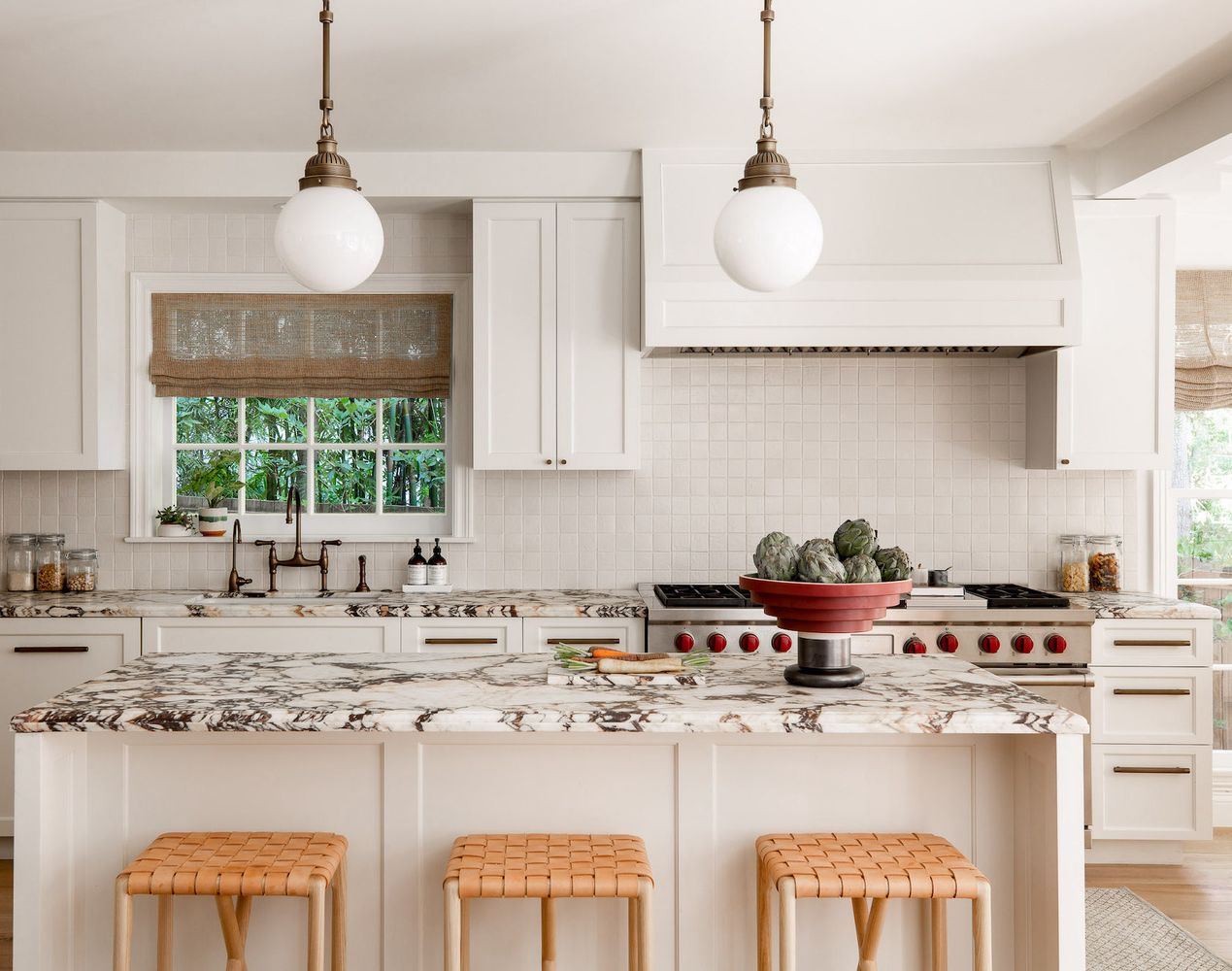
Gold bridge faucet
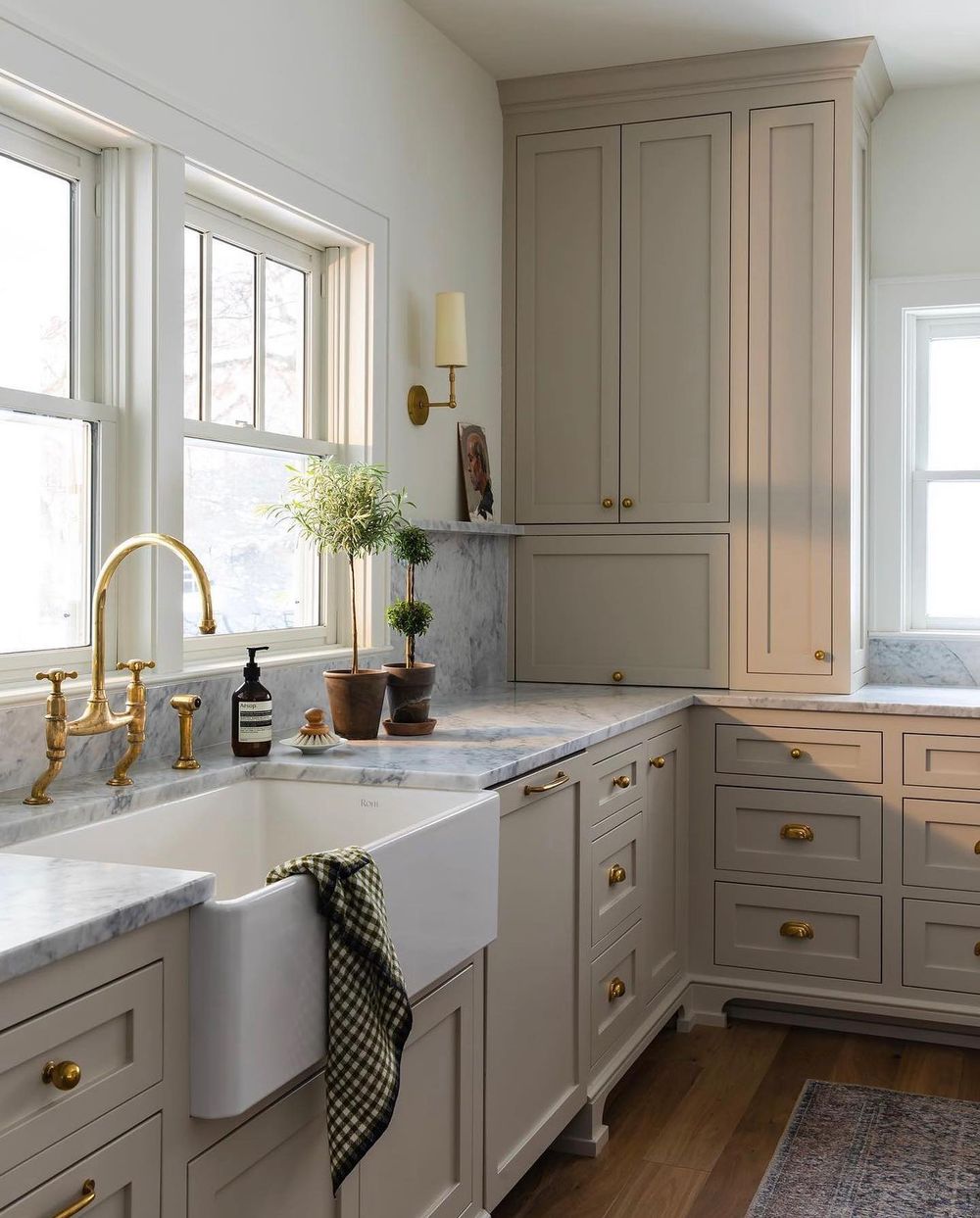
Marble kitchen countertops with black lower cabinets
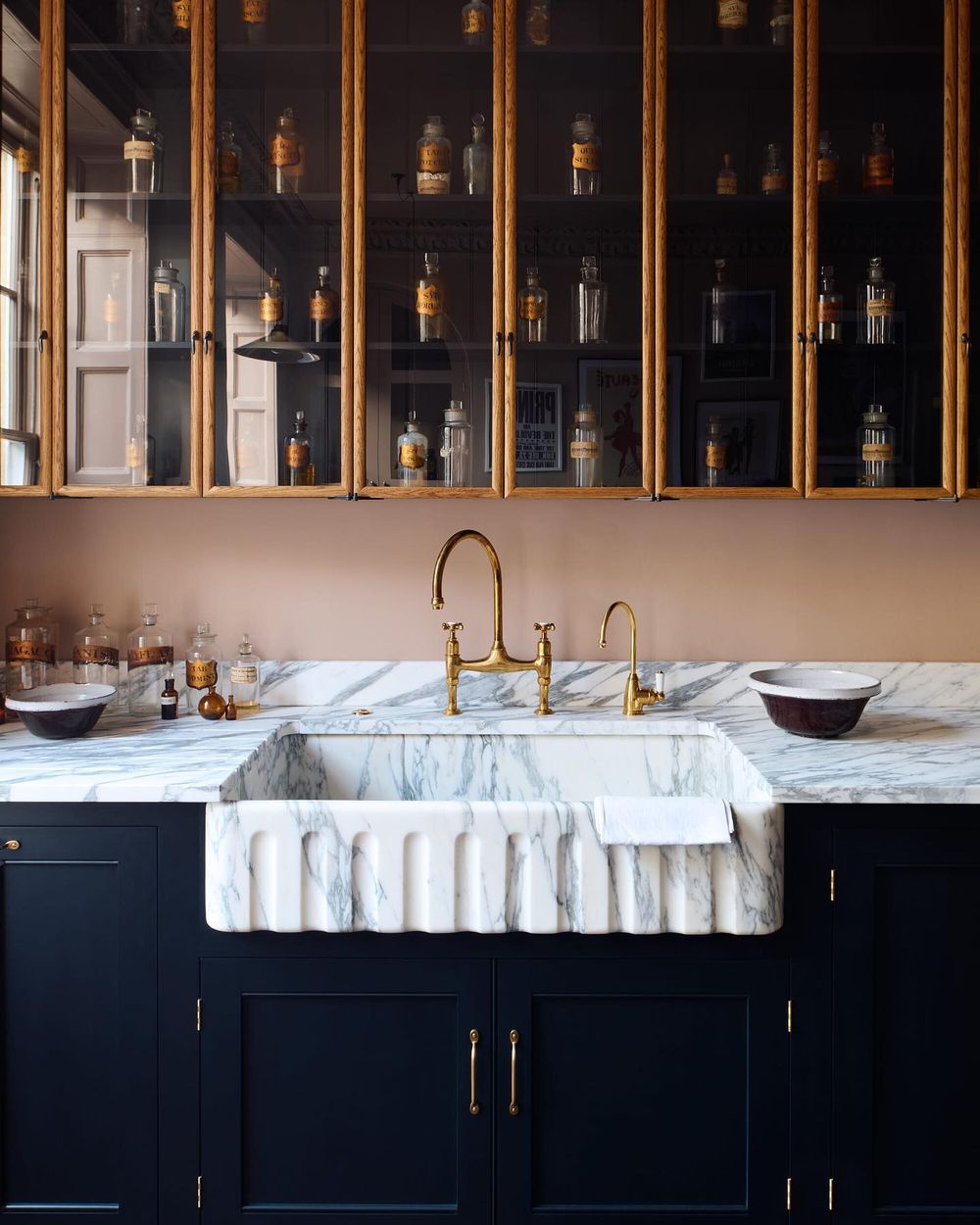
Marble kitchen countertops with blonde wood cabinets
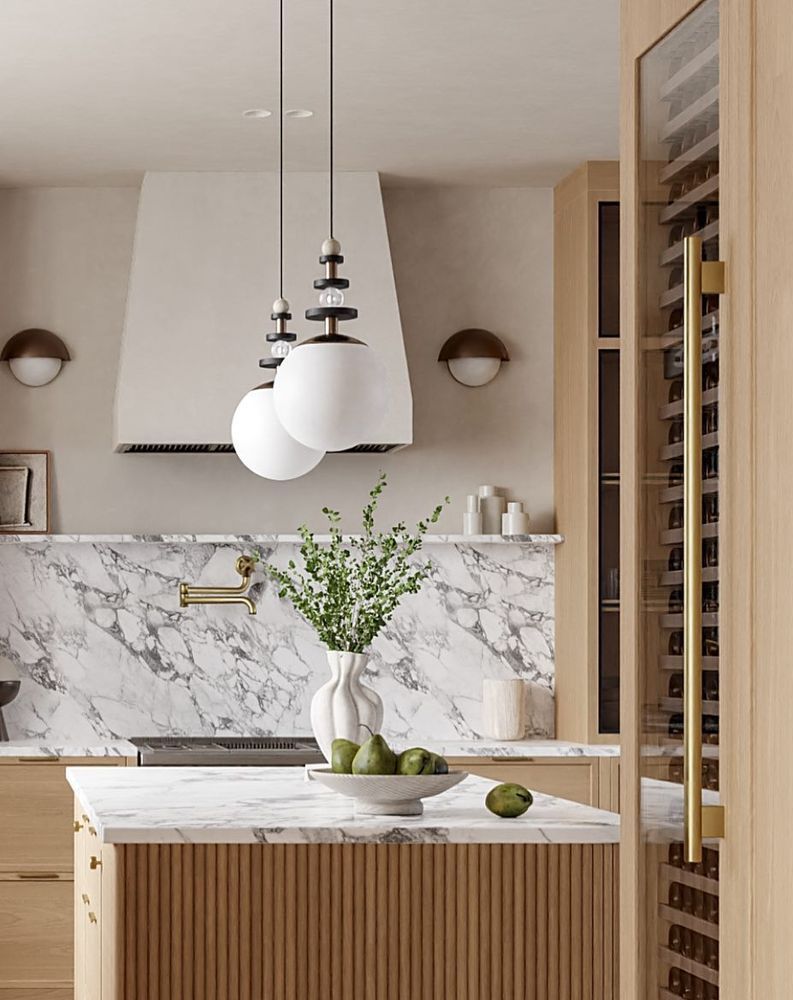
Marble kitchen countertops with Cream cabinets
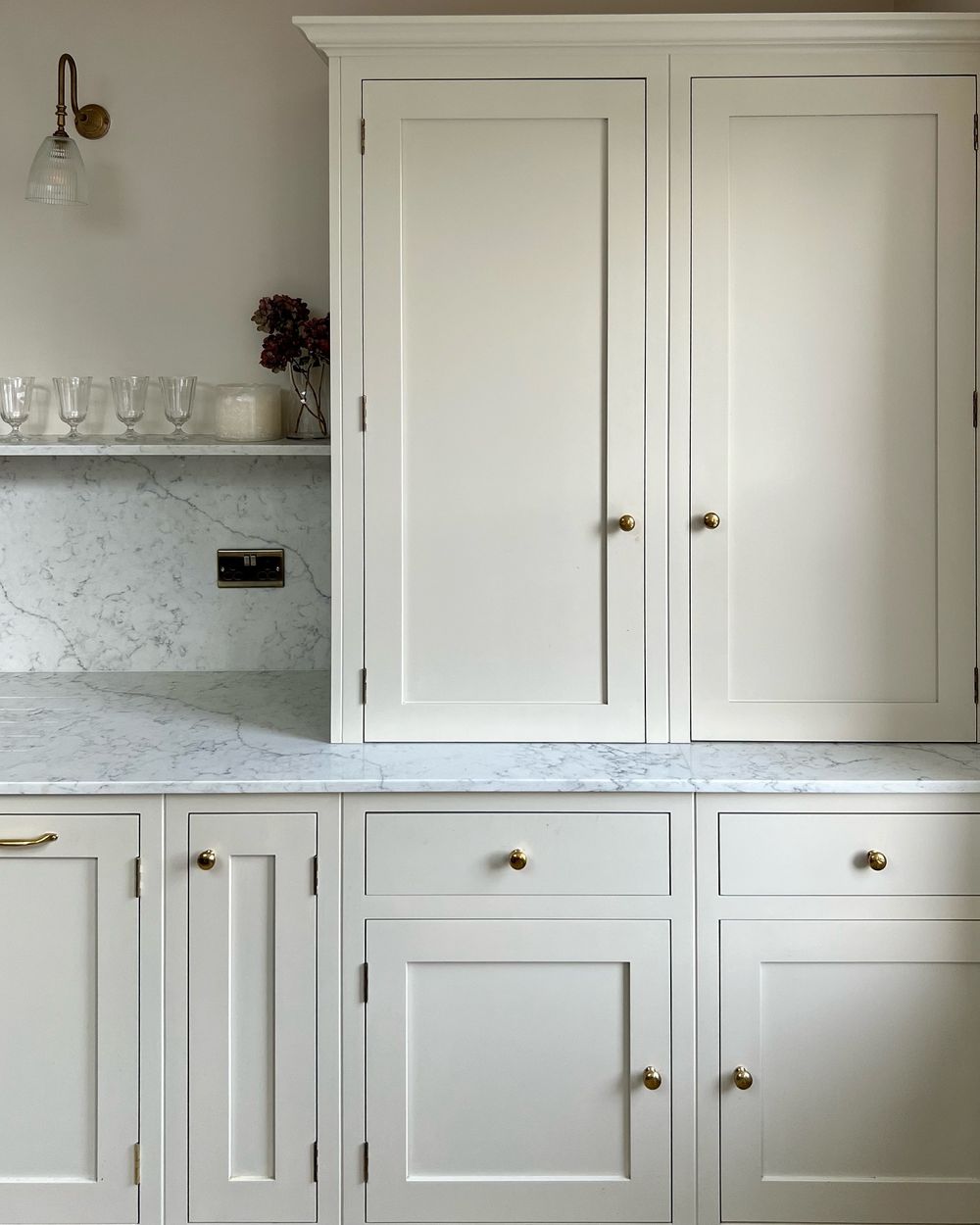
Marble kitchen countertops, backsplash, and ledge
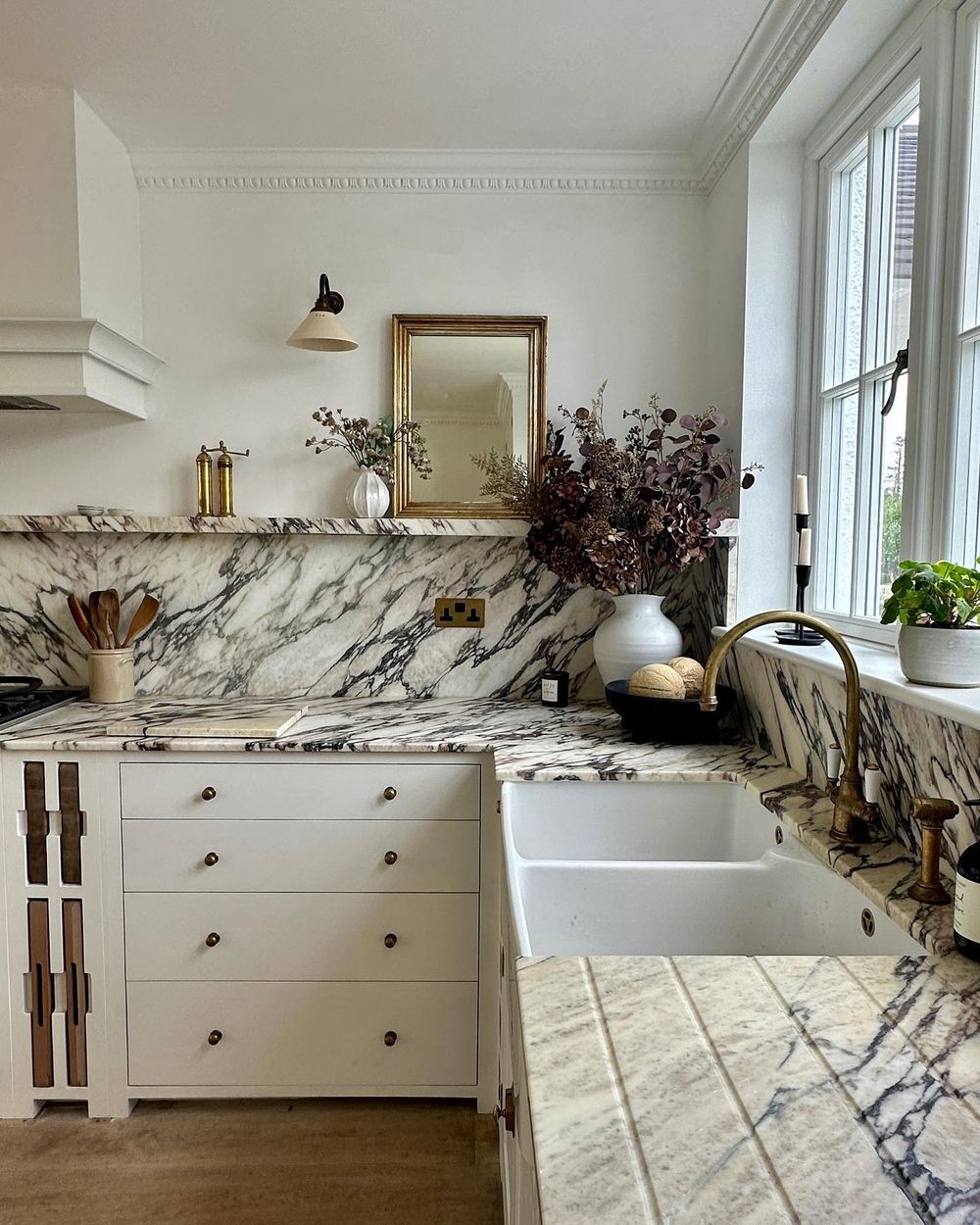
Marble kitchen countertops with Caramel wood cabinets
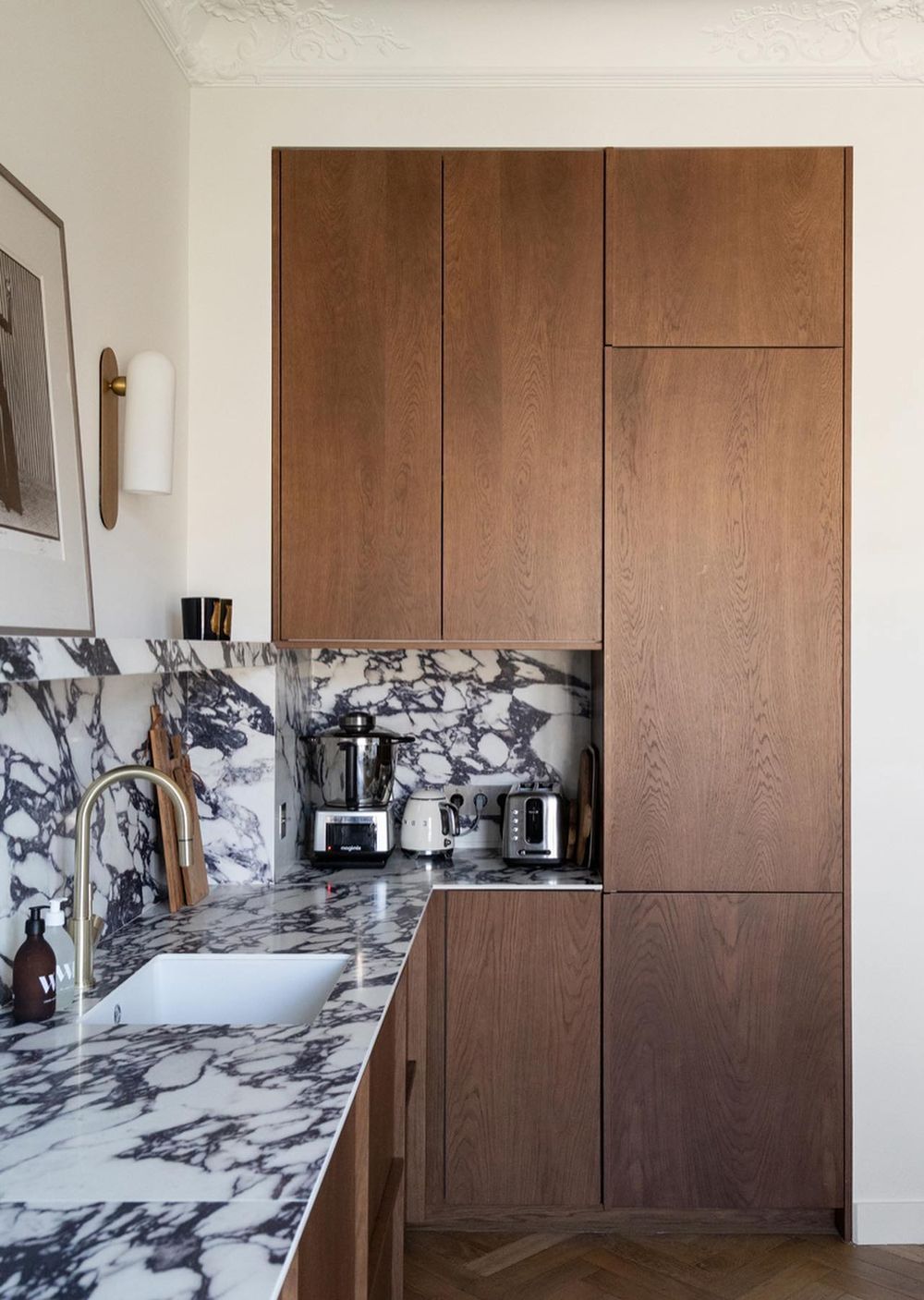
Marble kitchen countertops with waterfall cabinets
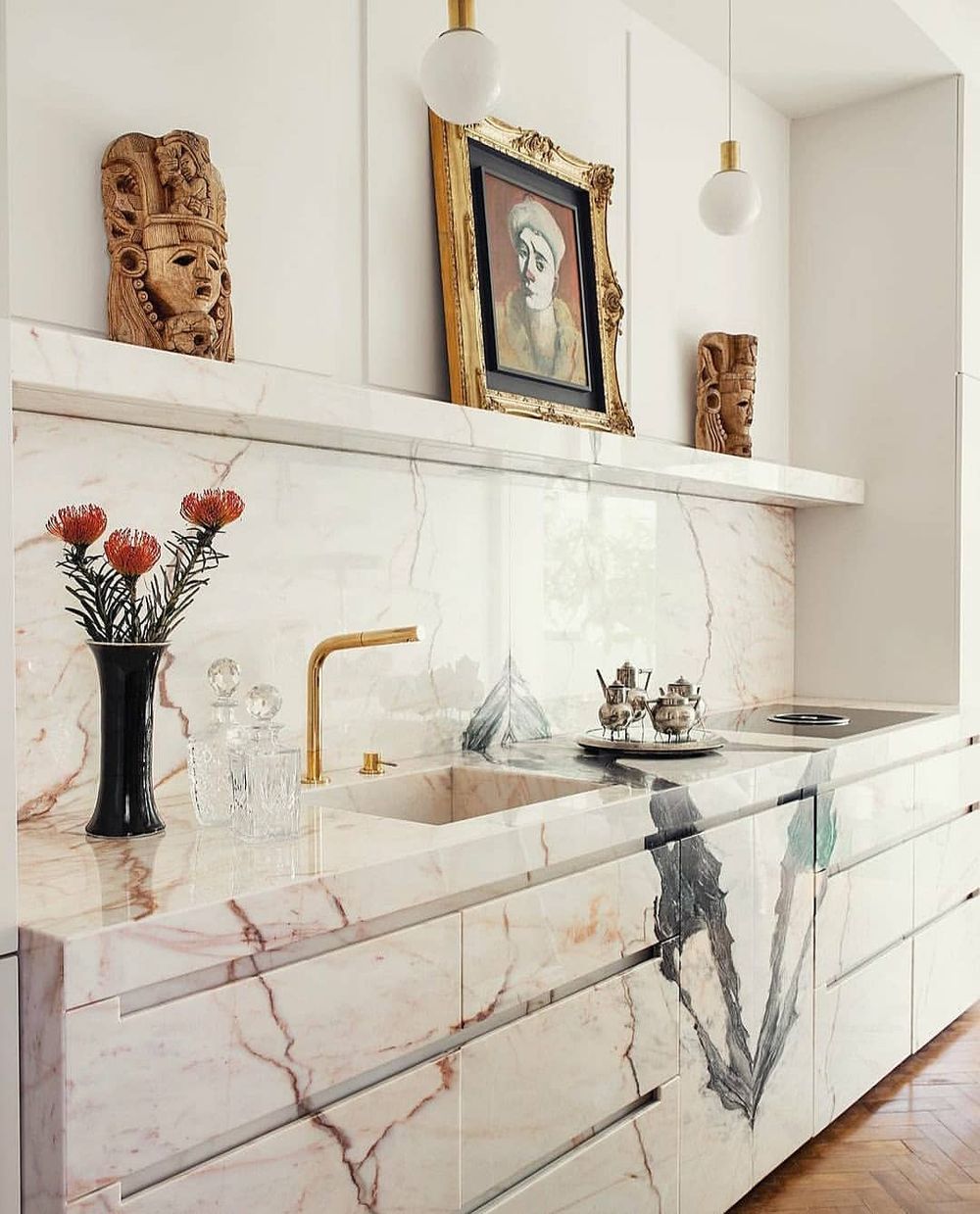
Marble Countertop Downsides
While marble countertops are undeniably beautiful and can add elegance to any kitchen or bathroom, they also come with some drawbacks. Here are some cons of marble countertops:
Marble is a porous material, which means it can easily absorb liquids. This makes it susceptible to staining from common kitchen items like wine, vinegar, and citrus juices. Sealing can help mitigate this issue, but it’s not foolproof.
Marble is sensitive to acidic substances, which can cause etching or dull spots on the surface. This includes common kitchen ingredients like lemon juice, vinegar, and tomato sauce.
Marble is relatively soft compared to other countertop materials like granite or quartz. It can scratch more easily, especially if it comes into contact with abrasive materials or sharp objects.
Marble countertops require regular maintenance to keep them looking their best. This includes sealing them periodically to protect against stains and etching, as well as cleaning up spills promptly to prevent damage.
So, are you sold on marble kitchen countertops?
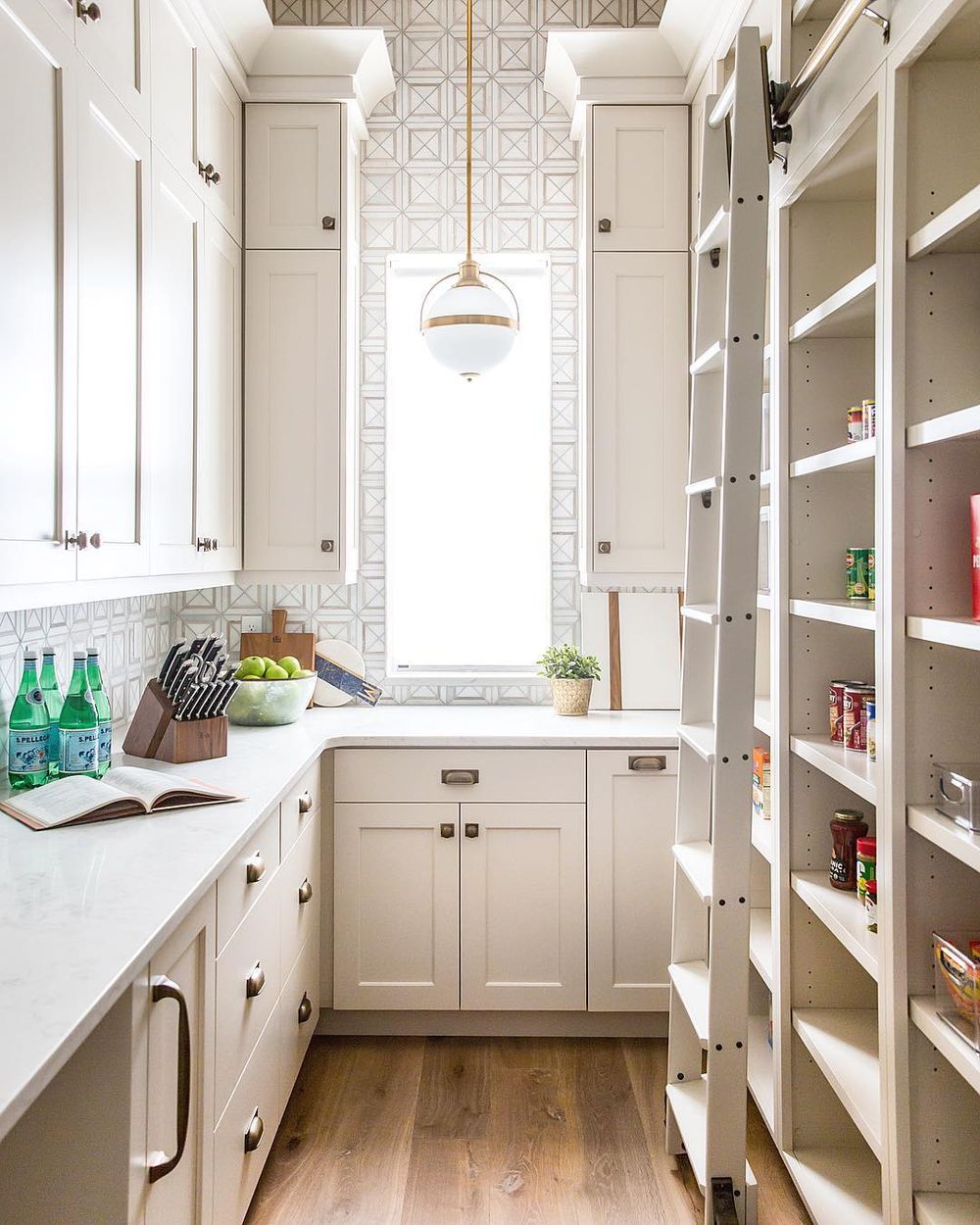
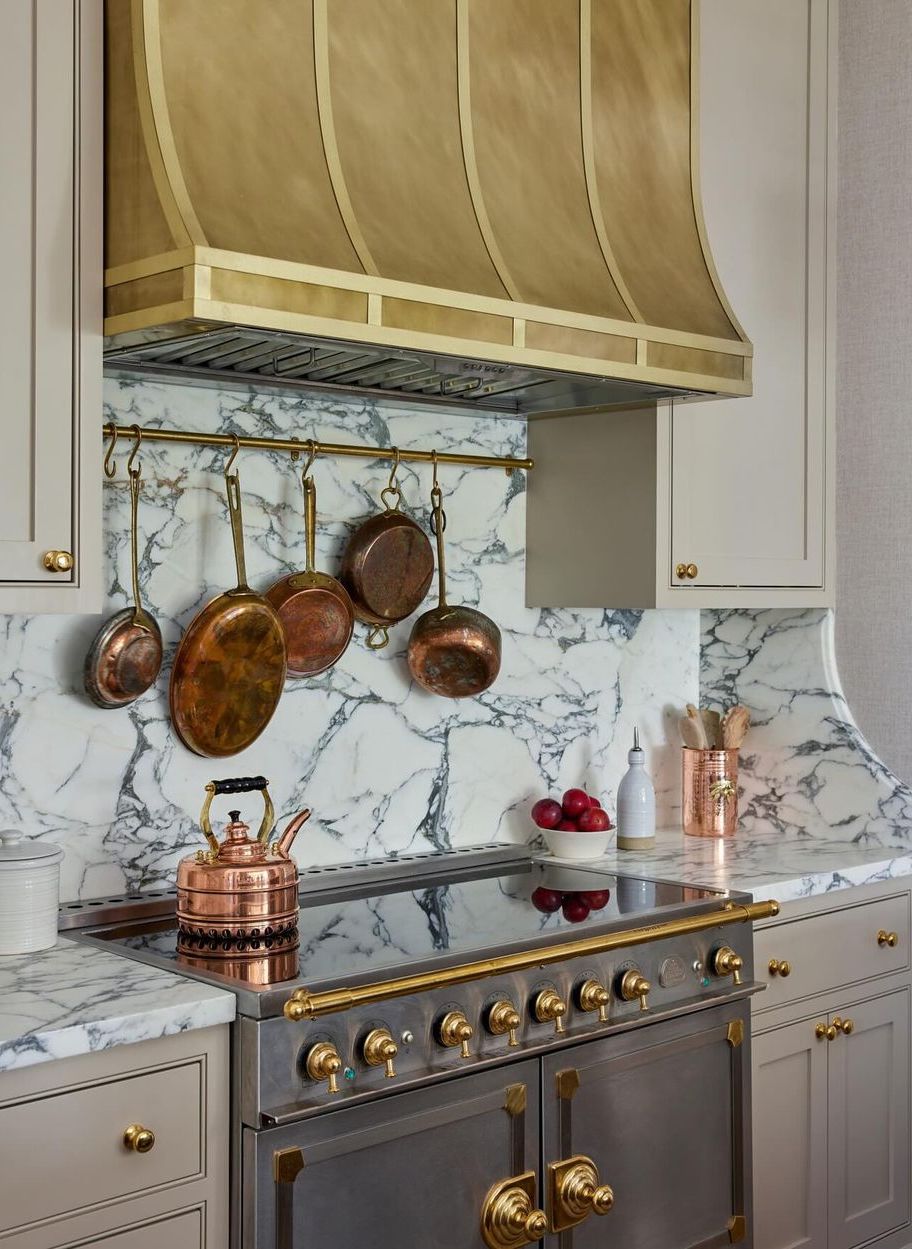
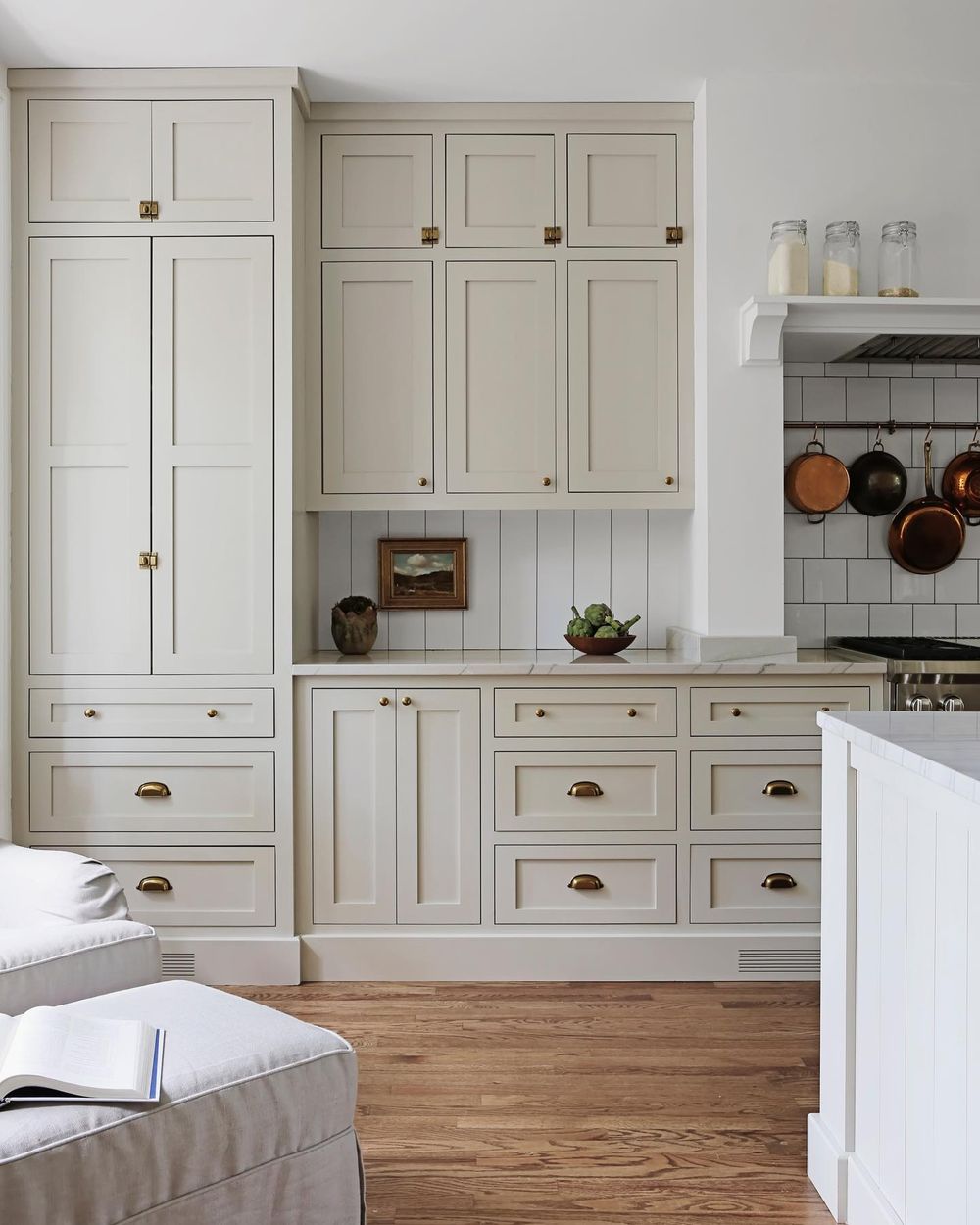
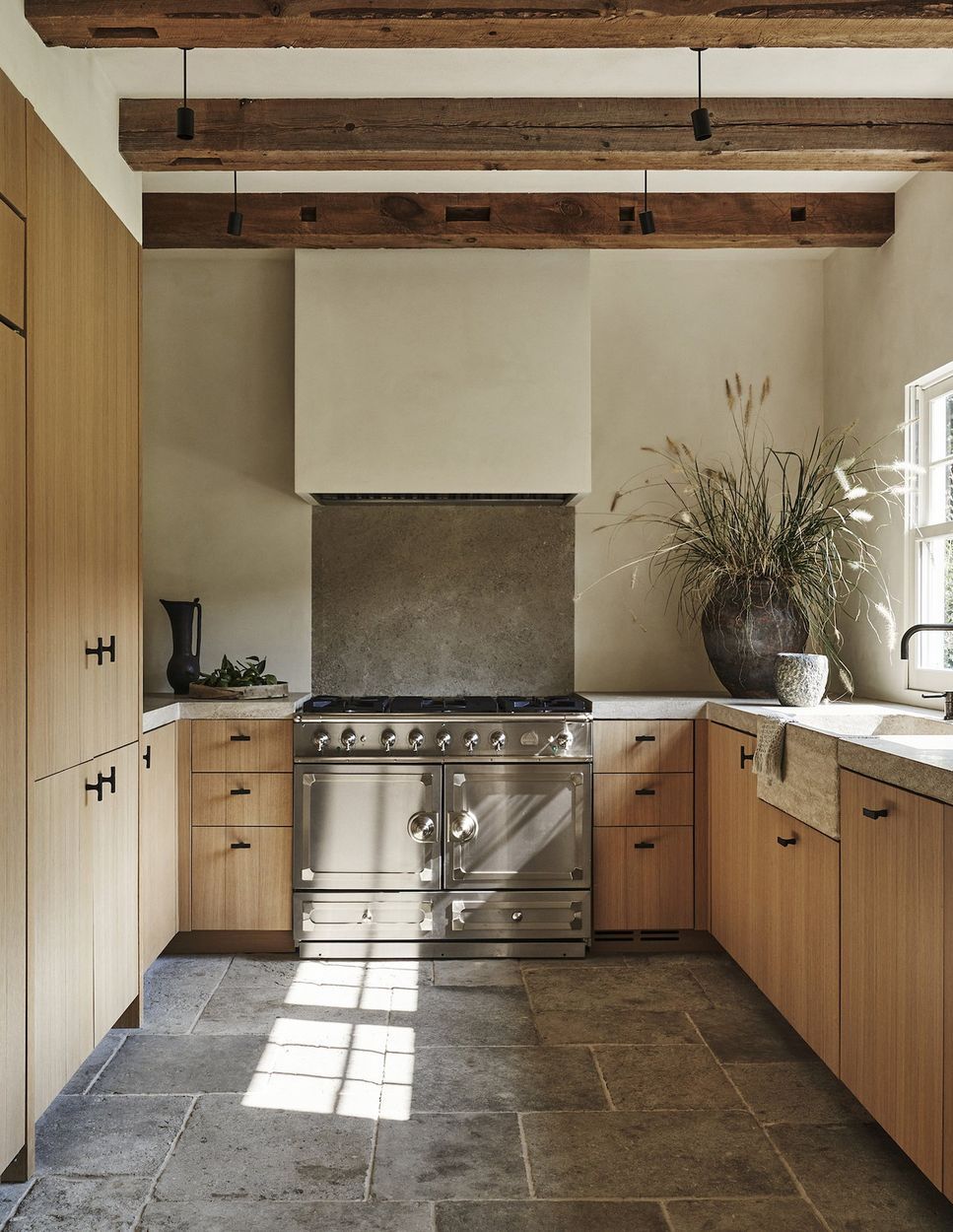
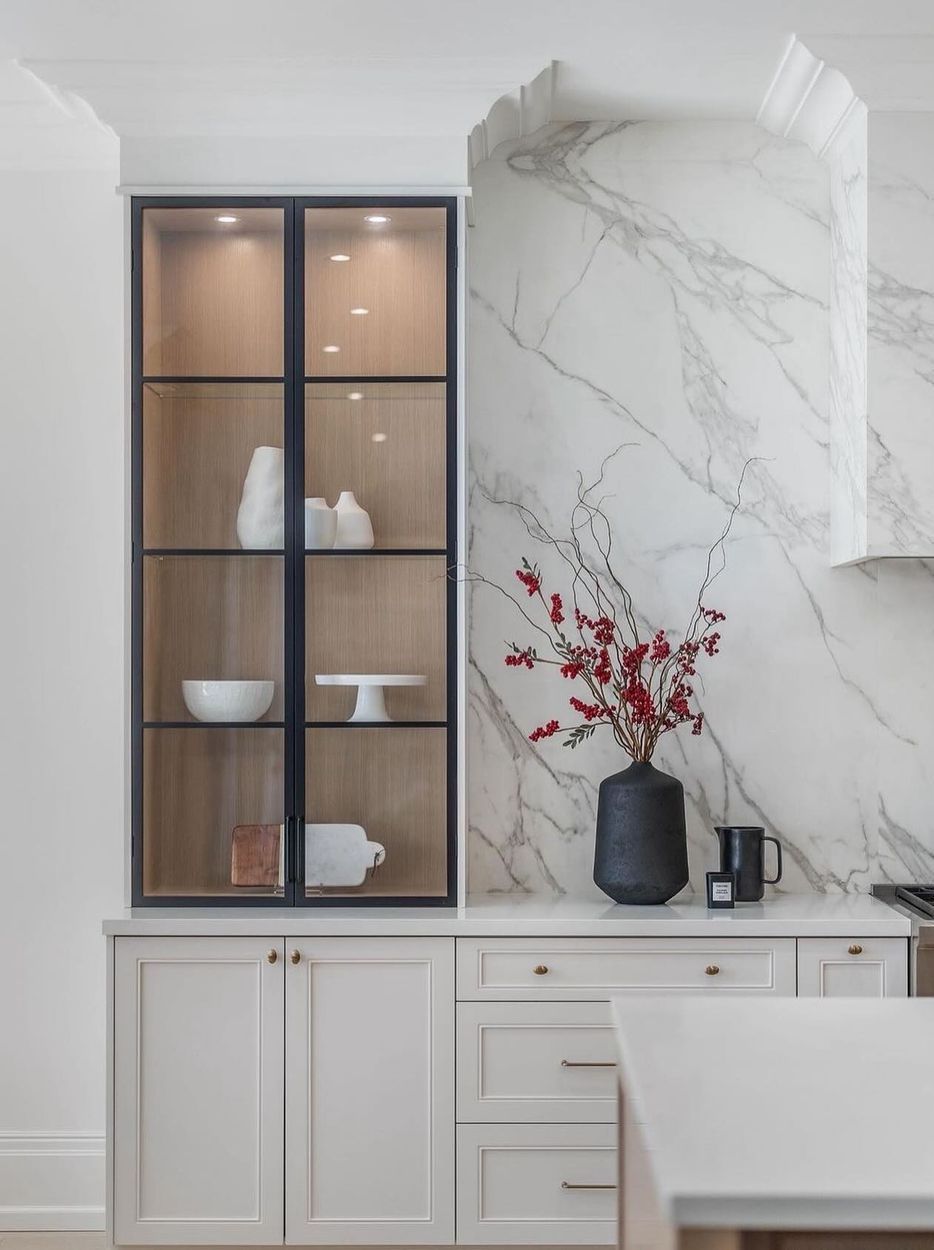
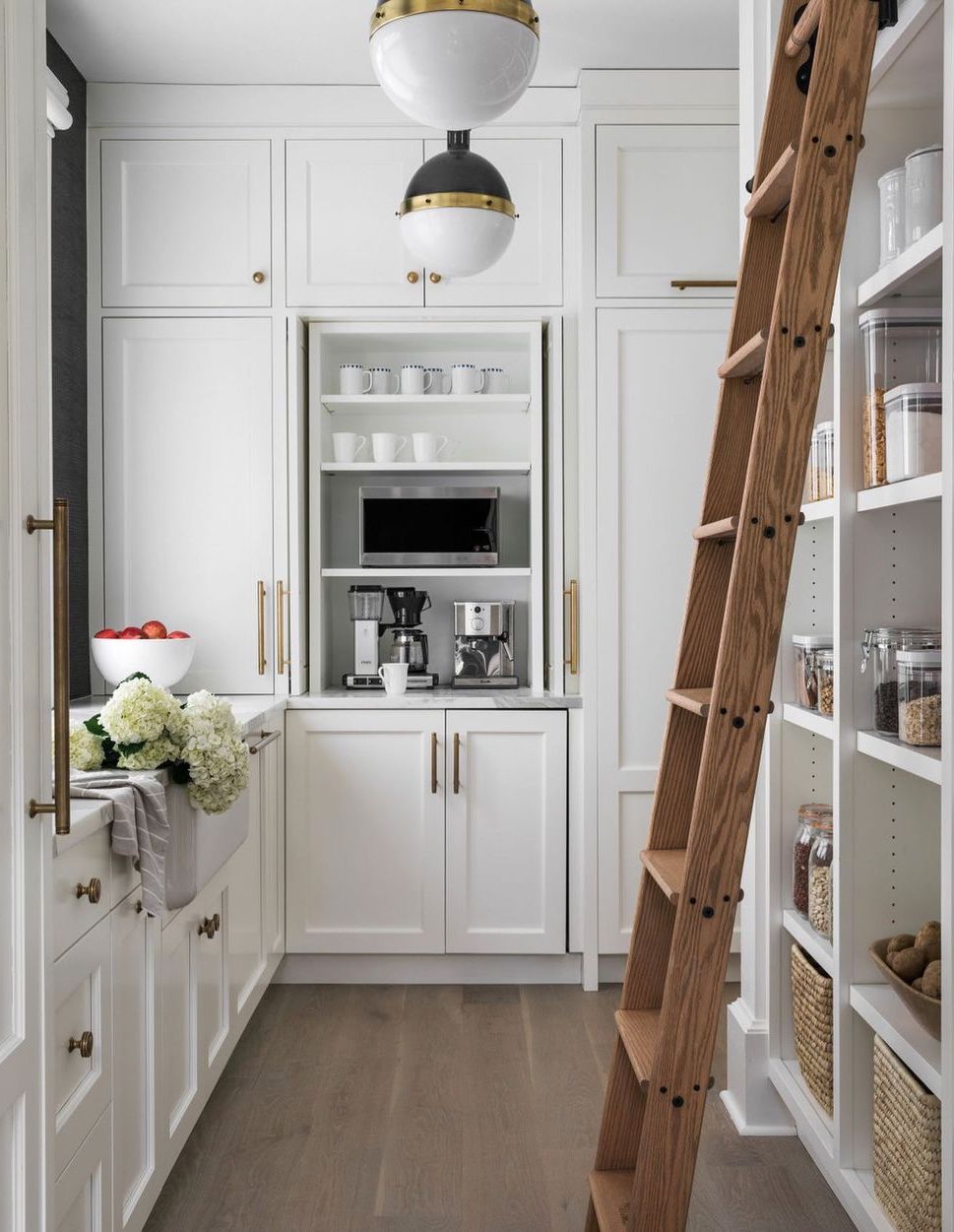
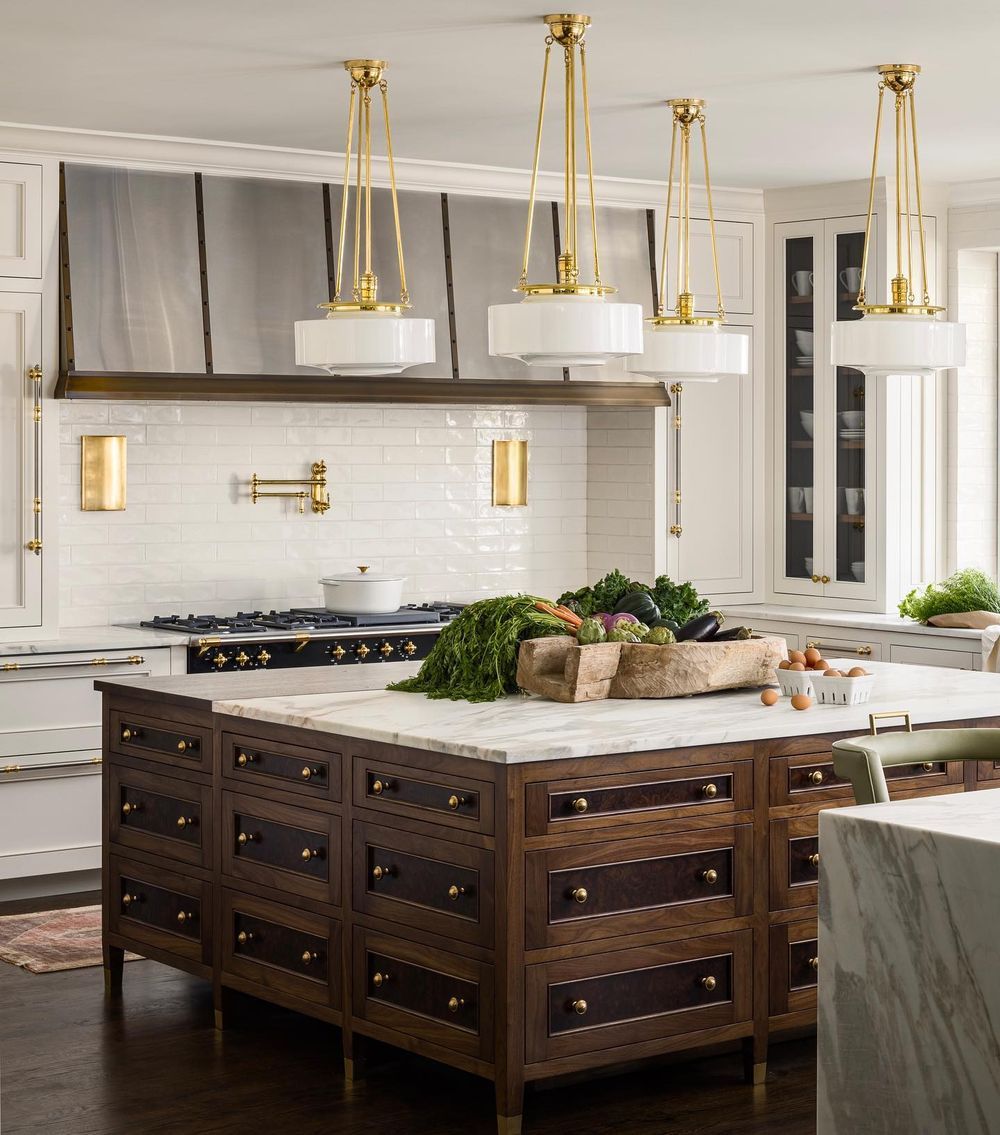
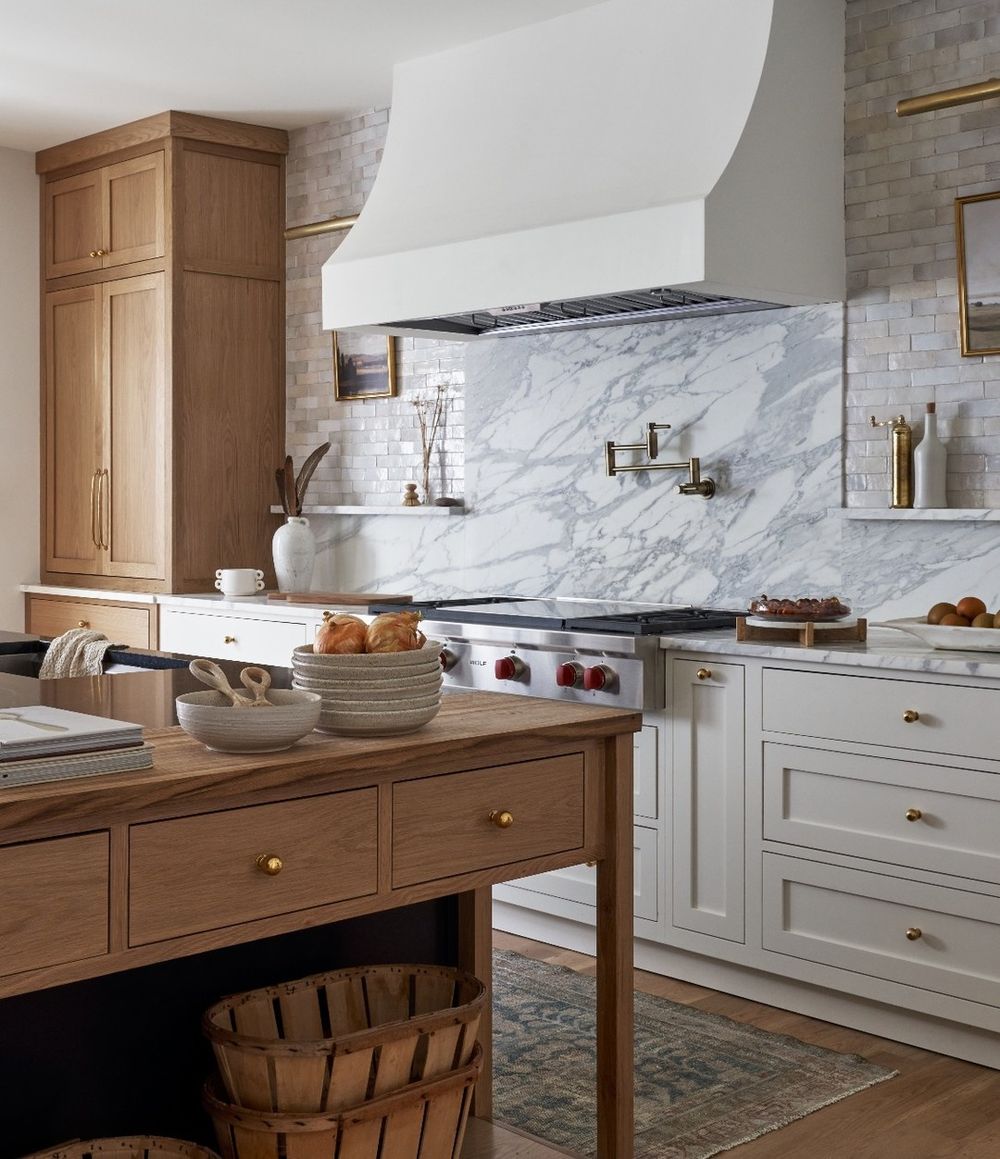
Such a useful post! Homeowners researching for the perfect kitchen countertop option would surely find this helpful!
Excellent article about Another Beautiful Kitchen Remodel. We appreciate you providing us with this wonderful blog article. I will be using this tips for my own clients so that there Half Price Kitchen go smoothly.